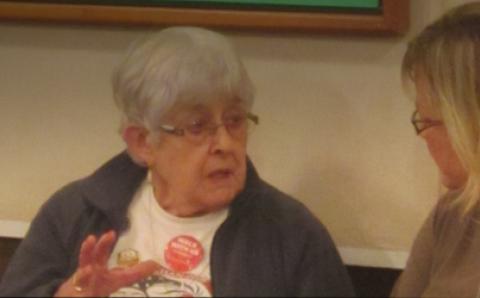The birds are singing in fields filled with lush greenery and bright flowers on this sunny day. On acres and acres of land, the harvest is plentiful. For the many farmers who live here, this had not always been the case.
Ten years ago, farmers in this part of Nicaragua were some of the poorest in the country. They rented or share-cropped on someone else’s land. Despite hard work, their profits were limited, and they struggled to provide for their families’ needs. Their homes leaked during the rainy season. There were few schools, and very little community infrastructure existed.
World Renew began to work in this part of Nicaragua with its two local partners, Christian Medical Action (AMC) and the YMCA of Nicaragua (ACJ), to help people address their needs and build better lives. At first they met with little success.
Without ownership of the land they were working, farmers were unwilling to make a long-term investment in new farming techniques. Those who did invest time and energy in improving the land were at risk of having their rents increased or their land taken away by the owners.
“After several years of working with smallholder farmers in Nicaragua, we came to a conclusion,” said Mark VanderWees, World Renew’s country consultant in Nicaragua. “If we were going to have a meaningful impact in the lives of rural poor, we would need to address the issue of land tenure.”
They presented this situation to God in prayer. The solution they were led to was to create a “land bank” from which farmers could access land and pay for it over time until they owned it outright. As these farmers made payments, the “bank” could purchase more land and allow more people into the program.
Generous support from Partners Worldwide and a group of farmers in Iowa provided the capital to purchase land; World Renew and the Foods Resource Bank provided support for the organizing and training components of the project.
“From the onset it was obvious that this would be a long-term process. World Renew and its partners were prepared to be in it for the long haul,” VanderWees explained, citing examples of lost crops, delinquent payments, farmers who could not live by the conditions of the program, difficulty in marketing the excess crops that were produced, and other hurdles they faced along the way. “Many adjustments to the program design had to be made.”
Nor was the process easy on participating farmers. The land for the land bank was hilly, compacted, and overgrazed. World Renew divided it into individual parcels and trained people how to fertilize the soil, prevent erosion, manage plant disease and insects, grow new crop varieties, and market their produce. After that, the hard work fell on the shoulders of the farmers themselves.
“The first couple of years for these farmers could be compared to homesteading in North America when the population moved westward,” said VanderWees. “The land barely produced enough for the family’s consumption, let alone for making any payments on their land.”
Then everything took a turn for the better. Farmers lost their timidity and began to implement their new learning with confidence. They planted beans, corn, and a variety of flowers and vegetables. They started drip irrigation systems to grow vegetables in the dry season. They planted fruit trees and invested in improving their homes with zinc roofs and sturdier walls.
“Some youths even built a baseball diamond together, another community built a school, and one land bank community dug kilometers of ditches to bury pipes for a water system,” said VanderWees, rejoicing.
Today, 10 years after the land bank program began, there are seven land banks and almost 100 farmers in the program. During a recent visit, many of these families stated proudly that for the first time in their lives they have food year-round.
“For me, the best part of the visit was seeing plots of land that were barren three years earlier turned into lush oases of vegetation, abounding with tropical fruit, tubers, and vegetables,” VanderWees said. “They were little gardens of Eden in a land that used to be so bleak.”
About the Author
Kristen deRoo VanderBerg was part of the World Renew Communications team from 1999-2016. She now serves as director of Communications & Marketing for the Christian Reformed Church.








